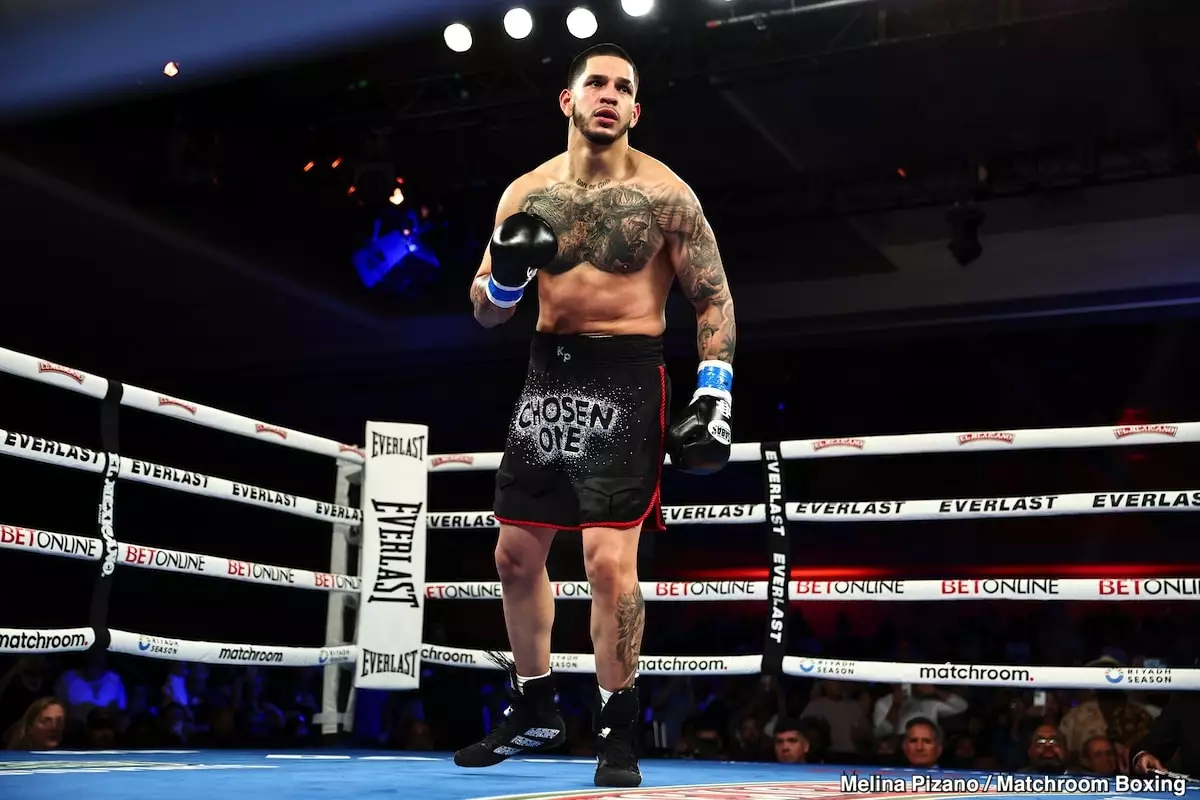In an age where social media carries immense power, Edgar Berlanga is unabashedly utilizing it to showcase his bravado and self-perceived superstardom. The 27-year-old fighter, who boasts a record of 23 wins and only one loss, made headlines recently when he took to social media to bluntly inform Caleb Plant that he holds the “A-side,” offering a mere $200,000 for a potential matchup. This brash declaration is emblematic of Berlanga’s inflated self-image following his loss to Canelo Alvarez, where simply enduring all twelve rounds seems to have instilled a sense of untouchable confidence in him. Such a perception poses serious questions about the credibility of a fighter who has only faced subpar competition and builds his reputation on a significantly lopsided fight against Alvarez.
A Strategic Retreat from Challenges
Berlanga’s strategy seems less about competition and more about cleverly maneuvering his way out of tough fights. By pricing himself out of contention with Plant and publicly minimizing his adversary’s potential, he’s playing a risky game that could backfire. Is this type of psychological warfare a sign of a cowardly sidestep from genuine competition? Plant, a former IBF super middleweight champion, has faced higher-caliber opponents, and Berlanga’s overtures could be seen as an insult to Plant’s achievements. While one might argue that negotiation tactics are par for the course in boxing, Berlanga’s naked attempt to establish dominance while simultaneously ducking a worthy opponent raises eyebrows.
Seeking Soft Targets: The Munguia and Charlo Shifts
Interestingly, Berlanga has indicated a desire to fight Jaime Munguia—a fighter whose performance has significantly declined—because he views him as an easier target. With a sketchy record of 1-2 in recent bouts, Munguia can hardly be regarded as the ideal benchmark for excellence. The “Mexico vs. Puerto Rico” narrative might stir some excitement among fans, but this matchup appears to be less about showcasing talent and more about capitalizing on narrative-driven engagements in the sport.
Moreover, Berlanga’s backup plan, should Munguia not be available, revolves around challenging Jermall Charlo. At 35 years old and with two years spent away from active competition, Charlo presents another perceived soft landing for Berlanga. Rather than pursuing ambitious challenges that would elevate his status, Berlanga seems content to engage in fights that he believes he can win without exerting himself too much.
The Illusion of the International Market
Berlanga’s reliance on international contracts, particularly with burgeoning markets like Saudi Arabia, reveals a deep-rooted prioritization of financial gain over sporting integrity. Many boxing fans already view him skeptically, questioning his willingness to engage in real competition. The possibility of lucrative deals from the Saudis might overshadow the value of genuine rivalries, ultimately affecting the competitive nature of the sport. By fixating on these “cash cows” rather than challenging himself against stronger opponents, Berlanga risks alienating fans who seek genuine matchups rather than a string of financially motivated bouts.
In the world of boxing, where every fight has the potential to define a career, Berlanga’s choices illustrate a disturbing trend that prioritizes financial gain over the spirit of competition. The implications of such a stance could reshape the expectations of future contenders, blurring the lines between genuine championship aspirations and the pursuit of riches.

